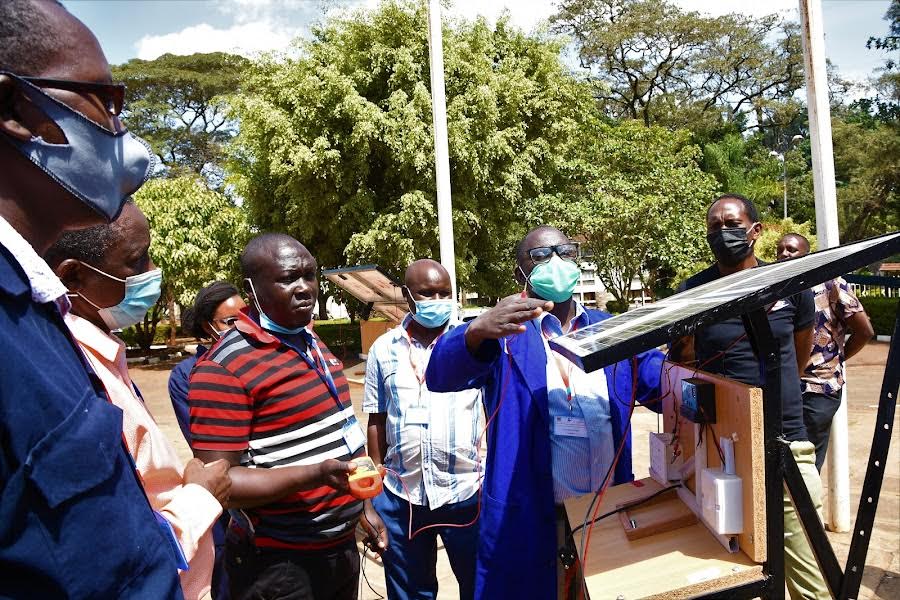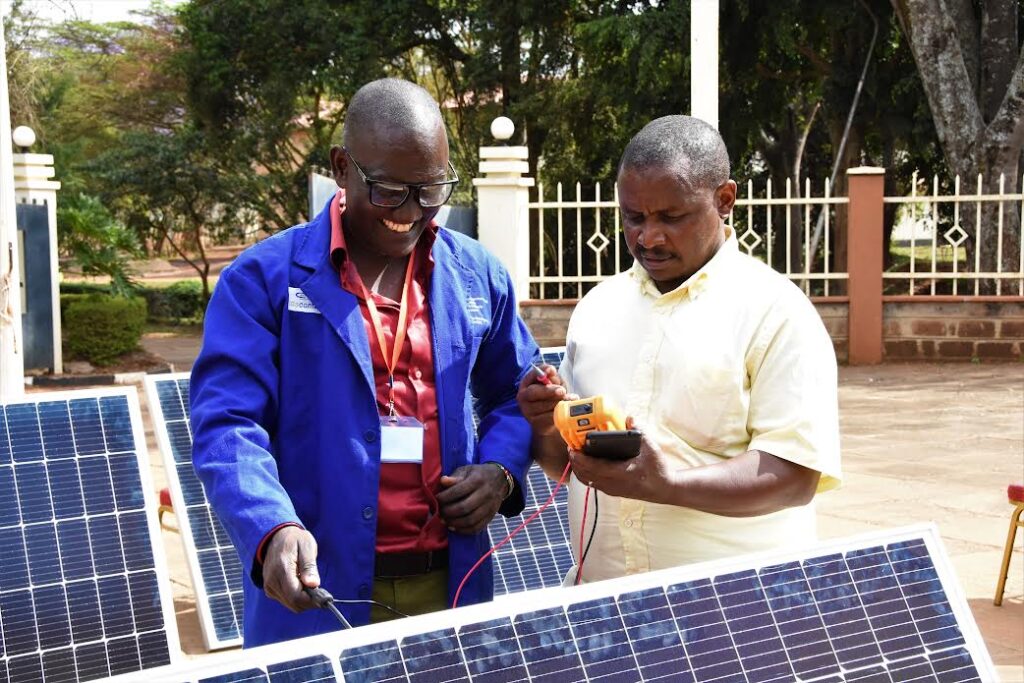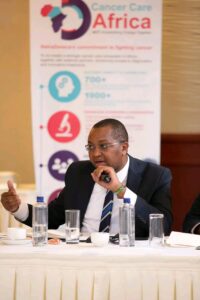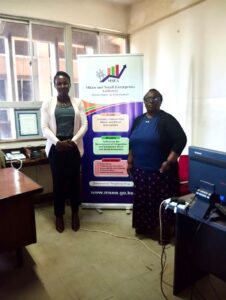KOSAP Embarks on Training for County Officials

……Skills transfer critical to Sh15 billion projects.
The Kenya Off-grid Solar Access Project (KOSAP) has embarked on extensive training of county government staff on various technical aspects of implementing solar power projects and related operational activities.
The training sessions that commenced last week, cover a variety of topics: Solar Photovoltaic (PV) Systems; Distribution Network Design; Energy Regulation, Metering, Electricity Tariffs and Pricing; as well as Environment and Social Impact Assessments. They are meant to ensure that those working on KOSAP are equipped with the necessary technical skills and knowledge.
The courses, whose periods vary based on the knowledge area being covered, are targeting about 100 participants in this phase, while the trainers are drawn from the Multimedia University of Kenya (MMUK), Kenya Power Institute of Energy Studies and Research( IESR) and Jomo Kenyatta University of Agriculture and Technology (JKUAT).
Said Energy PS Dr. Eng. Joseph Njoroge: “Capacity Building is an integral part of KOSAP. Through structured training by qualified trainers, we are equipping those working on the project with the requisite knowledge and skills. The training is also critical in ensuring knowledge and skills transfer to the beneficiary communities, thereby underwriting the sustainability of the project during its tenure and beyond.”
One of the beneficiaries of the Solar PVC Training at MMUK training, Mr. Peter Cherbogei, who is also the Director of Energy, Narok County, lauded the initiative noting that the implementation of the skills and knowledge acquired during the training will enhance energy access in the counties.“We are glad to have covered essential topics on safety basics during installation; operations and maintenance of PV plants; troubleshooting of solar PV components and boreholes; as well as testing and commissioning of solar powered projects, ’’he added.

Participants in the environmental, social impact assessment and environmental audit training that kicked off today at JKUAT, Nairobi Campus, noted that the trainings were timely as they are meant to resolve real time challenges the county staff were facing in implementing Projects. “After this training, I will be in better position to supervise consultants hired by the County to undertake environmental and social audits,” noted Ms. Amina Abdi, Chief Officer, Energy; Isiolo County.
Previously the Project had trained 85 County Officer on Solar PV T1 & T2, Sustainable Energy Resource Planning, Project Planning and implementation, Environmental and Social Management and Result Based Monitoring and Evaluation offered in Strathmore University, Kenya School of Government, ESAMI Mombasa and JKUAT. The current phase of training will run up to the end of November, 2021.
Financed by the World Bank to the tune of Sh15 billion, and being implemented by the Ministry of Energy, Kenya Power and Lighting Company (KPLC) and Rural Electrification and Renewable Energy Corporation (REREC), the six-year project is a key modern energy densification project targeting consumers in 14 countries that are currently underserved by the national electricity grid. The KOSAP counties include Kwale, Kilifi, Taita Taveta, Tana River, Garissa, Mandera, Wajir and Marsabit. Others are Turkana, West Pokot, Samburu, Narok, Lamu and Isiolo.
KOSAP is organized around four components. These are: mini-grids for community facilities, enterprises and households; standalone solar systems and clean cooking solutions for households; and standalone solar systems and solar water pumps for community facilities. The community facilities targeted include health, education and offices of local administrators. To ensure sustainability of the project, implementation support and capacity building have been factored in as the fourth component of the project.
KOSAPseeks to have 250,000 households served by stand-alone solar systems and 150,000 households served by Clean Cooking Solutions (CCS) by the end of the project. KOSAP further seeks to construct 157 mini-grids in the targeted counties that will be used to connect about 61,500 households with solar power. Similarly, about 473 public facilities, including secondary schools, health clinics as well as administrative offices will be supplied with solar power under the project. A total of 380 boreholes that currently use diesel and other fuels will also benefit from the installation of solar power.





